Three Kids and a Queen
Cast & Crew
Edward Ludwig
May Robson
Henry Armetta
Herman Bing
Frankie Darro
Billy Burrud
Film Details
Technical Specs

Synopsis
Wealthy eccentric recluse Mary Jane Baxter returns to her home in New York after a long absence. She is harassed by relatives who are determined to have her declared unfit to administer her money, because she buys an entire plot of land for her dog, Aubrey, to run in, thereby preventing the construction of a skyscraper. She is also lambasted by the press for squandering her wealth on Aubrey. While on a carriage ride in the park, three poverty row boys, Blackie, Flash and Doc, nearly crash their jalopy, causing her carriage to overturn. Doc, who needs an operation on his leg and dreams of becoming a physician, determines that Mary Jane needs medical attention, takes her home and treats her. Despite his blusterings, their adoptive father Tony Orsatti helps to take care of her. In the meantime, Mary Jane's business manager has determined that Mary Jane has been kidnapped, and a nationwide search is implemented. A gang of criminals led by Benton decides to take advantage of the situation and kidnap her in earnest, and searches for Aubrey, hoping he will lead them to her. When Mary Jane reads an article about herself in which the Lunacy Commission declares she will be confined when found because her love of Aubrey proves she is neurotic, she refuses to leave Tony's apartment and threatens to prosecute anyone who reveals her location. Although Mary Jane is initially imperious, prompting the kids to nickname her "Queenie," she soon softens, and offers sound advice to Tony's daughter Julia, who is in love with Blackie, and comfort to the boys. Mary Jane is kidnapped by Benton, and Blackie, who is under the gang's influence, is coerced into helping force Mary Jane to sign a ransom note. Blackie calls the police, but Benton overhears and shoots him. To entrap Benton's gang, the police run a false article proclaiming that Blackie is dead, which prompts Benton to arrange to trade Mary Jane for ransom money. Benton goes to the pick-up point himself, but is captured by the police, who are led to the gang hideout by Blackie. Blackie rescues Mary Jane, but when Benton's thugs catch him, she hides in the trunk of their car. Finally, the police catch the criminals, and Mary Jane is forced to live in a sanitarium. At a hearing to determine Mary Jane's sanity, Tony and the boys testify to Mary Jane's motherly kindness, and a representative of a hospital testifies that Mary Jane has been donating money to the hospital. Finally, Mary Jane speaks for herself, saying that although she has always had money, she had no love until she encountered Tony's family, and that she has no intention of letting Doc or any other child go through life crippled. Mary Jane is released into the custody of Tony's family and returns home to collect $50,000 as a wedding present for Julia and Blackie.

Director

Edward Ludwig
Cast

May Robson
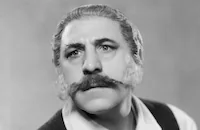
Henry Armetta
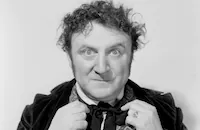
Herman Bing

Frankie Darro
Billy Burrud

Charlotte Henry

Lawrence Grant
Lillian Harmer

Henry Kolker

John Miljan

Hale Hamilton
Noel Madison
Tom Dugan

Irving Pichel
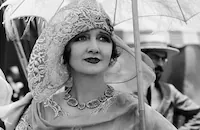
Hedda Hopper
Ferdinand Gottschalk

Edward Van Sloan
Louis Vincenot
Arnold Korff
Ed Mortimer
Fred Trowbridge
Emmett King
Frank Whitson
Jean Fowler
Leah Winslow
Gertrude Pedlar
Almeda Fowler
Gerald Pierce
David Tillotson
Phyllis Howell
Virginia Ray
Orville Caldwell

Ward Bond
Edmund Cobb

Lee Phelps
Jay Wilsey
Theodor Von Eltz
Adrian Morris
Stanley Andrews
Lorin Rowell
Robert Dudley
Ernie Alexander
Pat Gleason
Joe Torillo

George Irving
Charles Coleman
Eric Wilton
Alf James
Leigh De Lacy
Betty Arden
Ruth Garcia
Ed Cecil
Eddie Fetherston
Sherry Hall
Jack Hatfield
William Ruhl
Arthur Loft
House Peters Jr.
John King
Max Wagner
Jerry Larkin
Matty Kemp
Lloyd Whitlock
Alan Davis

E. E. Clive

Jonathan Hale

Emmett Vogan
Marc Lawrence
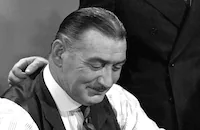
Edward Keane
Dutch Hendrian
Eddie Phillips
Tom Mcguire
Edward Lesaint
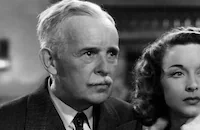
Howard Hickman
Barbara Bedford

King Baggott

Mary Maclaren
Agnes O'laughlin
Gus Reed
Frank Brown
Brandon Beach
Frank Mayo
Jack Richardson
Del Henderson
Crew
Chester Beecroft
Niven Busch
Albert S. D'agostino
Fred Frank
Myrtle Gibsone
Gilbert Kurland
Carl Laemmle
Carl Laemmle
Mary Marlind
Fred S. Meyer
Wilma Mority
Mortimer Offner
Samuel Ornitz
Maurice Pivar
Harry H. Poppe
Byron Robinson
Geo. Robinson
Ralph Slosser
Barry Trivers
Ben Verschleiser
Franz Waxman
Mary West

Film Details
Technical Specs

Articles
Marc Lawrence (1910-2005)
Born Max Goldsmith on February 17, 1910, in the Bronx, Lawrence had his heart set on a career in drama right out of high school. He enrolled at City College of New York to study theatre, and in 1930, he worked under famed stage actress Eva Le Gallienne. Anxious for a career in movies, Lawrence moved to Hollywood in 1932 and found work immediately as a contract player with Warner Bros. (an ideal studio for the actor since they specialized in crime dramas). He was cast as a heavy in his first film, If I Had a Million (1932). Although his first few parts were uncredited, Lawrence's roles grew more prominent: a sinister henchman in the Paul Muni vehicle in Dr. Socrates (1935); a conniving convict aiding Pat O'Brien in San Quentin (1937); a menacing thug stalking Dorothy Lamour in Johnny Apollo (1940); the shrewdly observant chauffeur in Alan Ladd's breakthrough hit This Gun For Hire (1942); and one of his most memorable roles as Ziggy, a fedora wearing mobster in the Bogart-Bacall noir classic Key Largo (1948).
Lawrence, when given the opportunity, could play against type: as the prosecuting attorney challenging Tyrone Power in Brigham Young (1940); a noble aristocrat in the Greer Garson-Walter Pidgeon period opus Blossoms in the Dust; and most impressively, as a deaf mute simpleton in the rustic drama The Shepherd of the Hills (both 1941). Better still was Lawrence's skill at comedy, where his deadpan toughness worked terrifically as a straight man against the likes of Joe E. Brown in Beware Spooks (1939); Abbott and Costello in Hit the Ice (1943); Penny Singleton in Life with Blondie (1945); and Bob Hope in My Favorite Spy (1951).
After that, Lawrence's career took a turn downward spin when he was labeled a communist sympathizer during the Hollywood witch hunts of the early '50s. He was exiled in Europe for a spell (1951-59), and when he came back, the film industry turned a blind eye to him, but television overcompensated for that. Here he played effective villains (what else?) in a series of crime caper programs: Peter Gunn, Johnny Staccato, The Untouchables, Richard Diamond, Private Detective; and eventually made a welcome return to the big screen as a returning exiled gangster in William Asher's underrated mob thriller Johnny Cool (1963).
It wasn't long before Lawrence found himself back in the fray playing in some big box-office hits over the next two decades: Diamonds Are Forever (1971), The Man with the Golden Gun (1974), Marathon Man (1976), Foul Play (1978); and The Big Easy (1987). Sure he was cast as a gangster, but nobody could play a rough and tumble mob boss with more style or conviction.
Interestingly, one of his finest performances in recent years was in television, as a severely ill old man unwilling to accept his fate in a fourth season episode of ER (1997-98). His last screen role was just two years ago, as a nimble minded VP in Looney Tunes: Back in Action (2003).
In 1991, Lawrence published a memoir about his venerable career, Long Time No See: Confessions of a Hollywood Gangster that received much critical acclaim. He has also developed a cult following due to his appearances in such offbeat items as From Dusk to Dawn and Pigs aka Daddy's Deadly Darling, the 1972 horror film he directed and starred in with his daughter Toni. He is survived by his wife, Alicia; two children from a previous marriage, Toni and Michael; and a stepdaughter Marina.
by Michael T. Toole

Marc Lawrence (1910-2005)
Quotes
Trivia
Notes
An undated but contemporary news item in Hollywood Reporter notes that Jerry Sackheim was slated as associate producer. It is unclear if he contributed to the final film. According to a news item in Lib, Universal purposely chose to have "Mary Jane" kidnapped instead of a child, as the kidnapping of children was forbidden by the Production Code Administration.














